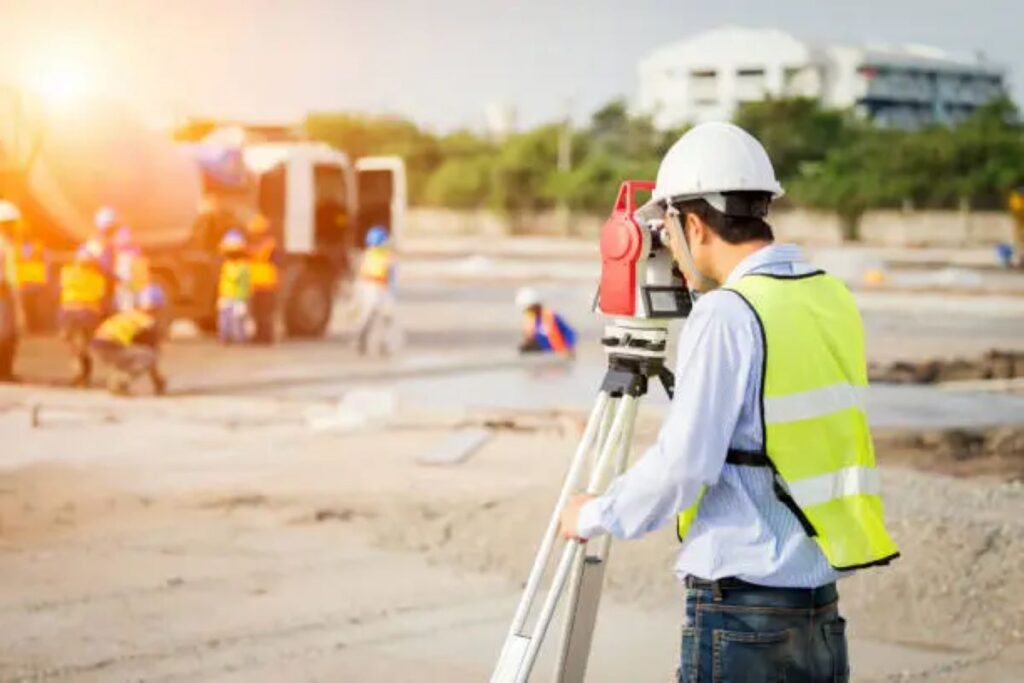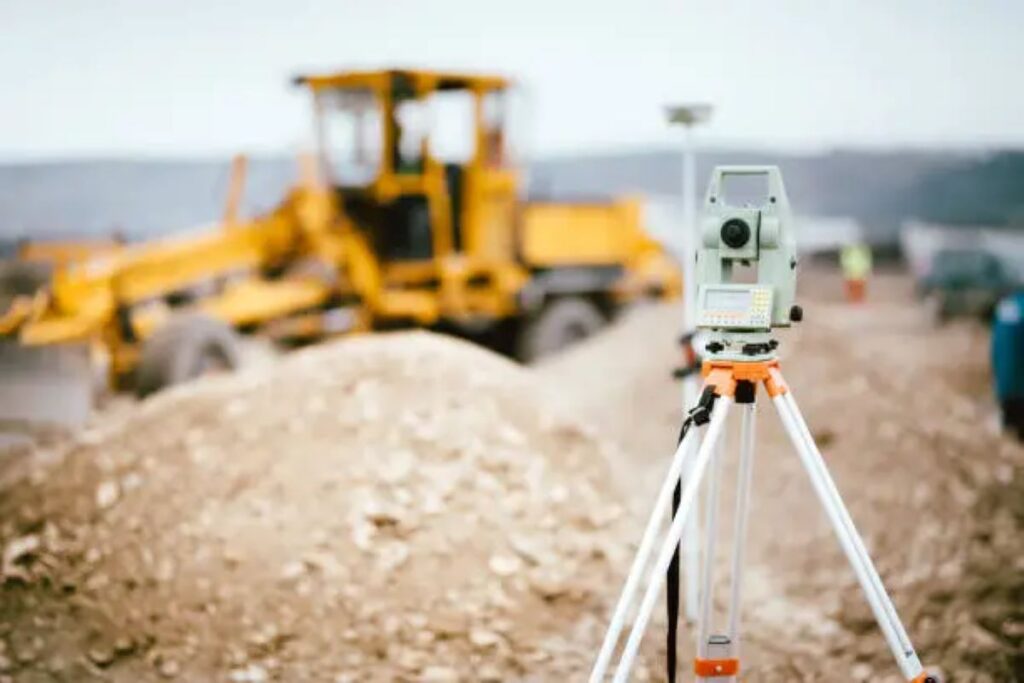Engineering surveying is a critical discipline that plays a vital role in the planning, design, and construction of various infrastructure projects. An engineering surveyor is responsible for providing accurate measurements and data that inform decision-making throughout the project lifecycle. This article delves into the multifaceted role of an engineering surveyor, exploring their responsibilities, skills, and the significance of their work in the engineering field.
Understanding Engineering Surveying
Engineering surveying encompasses a range of activities that involve measuring and mapping the physical features of the land. This discipline is essential for ensuring that construction projects are executed accurately and efficiently. The work of an engineering surveyor is not limited to just measuring distances; it involves a comprehensive understanding of geography, mathematics, and technology.
The Importance of Accurate Measurements
Accurate measurements are the foundation of any successful construction project. Engineering surveyors utilise a variety of tools and techniques to gather data about the terrain, including the use of GPS, total stations, and laser scanning technology. These measurements inform the design process, ensuring that structures are built in the correct location and at the right dimensions.
Moreover, precise surveying helps mitigate risks associated with construction. By identifying potential issues early in the planning stage, engineering surveyors can help prevent costly delays and modifications later in the project. This proactive approach is crucial for maintaining project timelines and budgets. In addition, the integration of advanced software for data analysis allows surveyors to create detailed 3D models of the terrain, which can be invaluable for visualising the project and making informed decisions. This technological advancement not only enhances accuracy but also improves collaboration among various stakeholders involved in the construction process.
Types of Engineering Surveys
Engineering surveying can be categorised into several types, each serving a unique purpose in the construction process. Some of the most common types include:
- Topographic Surveys: These surveys map the contours and features of the land, providing essential information for site planning and design.
- Construction Surveys: These surveys ensure that structures are built according to the specified designs and alignments.
- Boundary Surveys: These surveys determine property lines and are crucial for legal purposes.
Each type of survey requires a different set of skills and tools, highlighting the versatility and expertise of engineering surveyors. Additionally, there are specialised surveys such as hydrographic surveys, which are essential for projects involving bodies of water, and geodetic surveys, which focus on the precise measurement of large areas of the Earth’s surface. The ability to adapt to various environments and project requirements is a hallmark of proficient engineering surveyors, enabling them to contribute significantly to the successful completion of diverse construction projects.
The Role of an Engineering Surveyor
The role of an engineering surveyor is diverse and involves various responsibilities that contribute to the success of construction projects. From initial site assessments to final inspections, engineering surveyors play a pivotal role at every stage of the project.
Site Assessment and Planning
Before any construction can begin, a thorough site assessment is necessary. Engineering surveyors conduct preliminary surveys to evaluate the land’s suitability for the proposed project. This involves analysing the topography, identifying potential hazards, and assessing environmental factors.
During this phase, engineering surveyors collaborate closely with architects and engineers to provide insights that influence the design process. Their expertise in land measurement and mapping ensures that the project is feasible and aligns with regulatory requirements. Furthermore, they may also engage with local authorities to ensure compliance with zoning laws and environmental regulations, which can significantly affect the project’s timeline and budget. By understanding the intricate details of the site, engineering surveyors help to mitigate risks and enhance the overall planning strategy.
Monitoring and Quality Control
Throughout the construction phase, engineering surveyors are responsible for monitoring the progress of the project. They conduct regular checks to ensure that construction adheres to the specified plans and standards. This involves verifying dimensions, alignments, and elevations, which are critical for the structural integrity of the project.
Quality control is a significant aspect of an engineering surveyor’s role. By identifying discrepancies or deviations from the design early on, they can facilitate corrective actions, thereby maintaining the quality and safety of the construction. Additionally, engineering surveyors often employ advanced technology, such as GPS and 3D laser scanning, to enhance accuracy in their measurements. This technological integration not only streamlines the surveying process but also provides a detailed record of the construction progress, which can be invaluable for future reference or dispute resolution. Their meticulous attention to detail ensures that every aspect of the project meets the highest standards, ultimately contributing to the longevity and durability of the constructed assets. You may like to visit https://www.icsm.gov.au/education/fundamentals-mapping/surveying-mapping/surveying-methods to get more about Surveying methods.
Essential Skills for Engineering Surveyors
To excel in their role, engineering surveyors must possess a diverse skill set that combines technical knowledge with practical abilities. The following skills are essential for success in this field:
Technical Proficiency
Engineering surveyors must be proficient in using various surveying instruments and software. Familiarity with tools such as total stations, GPS equipment, and computer-aided design (CAD) software is crucial for accurate data collection and analysis. Additionally, a solid understanding of geodesy and photogrammetry enhances their ability to interpret complex data. Mastery of these technologies not only ensures precision in measurements but also allows surveyors to create detailed maps and models that are indispensable for planning and executing construction projects. As technology evolves, staying updated with the latest advancements in surveying equipment and software is essential for maintaining a competitive edge in the field.
Problem-Solving Abilities
Construction projects often present unexpected challenges that require quick thinking and effective problem-solving skills. Engineering surveyors must be able to analyse situations, identify potential issues, and develop practical solutions to keep the project on track. This might involve recalibrating instruments, adjusting project timelines, or even redesigning certain aspects of the work to accommodate unforeseen obstacles. Their ability to remain calm under pressure and think critically can significantly impact the overall success of a project, making them invaluable assets to any construction team.
Communication and Collaboration
Effective communication is vital in the role of an engineering surveyor. They must collaborate with various stakeholders, including architects, engineers, and construction teams, to ensure that everyone is aligned on project goals. Clear communication helps facilitate the smooth flow of information and fosters a collaborative working environment. Moreover, engineering surveyors often play a key role in presenting findings and recommendations to clients and other non-technical stakeholders, requiring them to translate complex technical jargon into easily understandable terms. This ability to bridge the gap between technical and non-technical parties not only enhances teamwork but also builds trust and confidence in their expertise.

The Impact of Technology on Engineering Surveying
The field of engineering surveying has evolved significantly with advancements in technology. The integration of modern tools and software has transformed the way surveyors conduct their work, enhancing accuracy and efficiency.
GPS and Geospatial Technology
Global Positioning System (GPS) technology has revolutionised the surveying process. Engineering surveyors can now obtain precise location data with incredible accuracy, allowing for more efficient site assessments and mapping. This technology also facilitates real-time data collection, enabling surveyors to make informed decisions quickly.
3D Laser Scanning
3D laser scanning is another innovative tool that has gained popularity in engineering surveying. This technology allows surveyors to capture detailed three-dimensional representations of the environment, providing a wealth of data that can be used for analysis and design. The ability to visualise complex structures in three dimensions enhances the planning process and aids in identifying potential issues.
Software Solutions
Advanced software solutions play a crucial role in data analysis and presentation. Engineering surveyors utilise specialised software for tasks such as data processing, modelling, and visualisation. These tools streamline workflows and improve the accuracy of survey results, ultimately contributing to the success of construction projects.
Challenges Faced by Engineering Surveyors
While the role of an engineering surveyor is rewarding, it is not without its challenges. Surveyors must navigate various obstacles that can impact their work and the overall success of construction projects.
Environmental Factors
Environmental conditions can significantly affect surveying activities. Weather-related challenges, such as rain, snow, or extreme temperatures, can hinder data collection and impact the accuracy of measurements. Engineering surveyors must be prepared to adapt their plans and methodologies to accommodate these factors.
Regulatory Compliance
Engineering surveyors must also navigate a complex landscape of regulations and standards. Compliance with local, state, and national regulations is essential to ensure that projects meet legal requirements. This often involves staying updated on changes in legislation and understanding the implications for surveying practices.
Technological Adaptation
As technology continues to evolve, engineering surveyors must remain adaptable and willing to learn new tools and techniques. Keeping up with advancements in surveying technology can be challenging, but it is essential for maintaining competitiveness in the field.
The Future of Engineering Surveying
The future of engineering surveying looks promising, with continued advancements in technology and an increasing demand for infrastructure development. As urbanisation and population growth continue to rise, the need for skilled engineering surveyors will only grow.
Emerging Technologies
Emerging technologies, such as drones and artificial intelligence, are set to further revolutionise the field of engineering surveying. Drones can provide aerial surveys with unprecedented speed and accuracy, while AI can assist in data analysis and decision-making processes. These innovations will enhance the capabilities of engineering surveyors and improve the efficiency of construction projects. Click here to get more about 5 Reasons Engineering Surveys Are Vital for Infrastructure Projects.
Increased Collaboration
The future of engineering surveying will also see an emphasis on collaboration across disciplines. As projects become more complex, the need for integrated teams that include surveyors, engineers, and architects will be paramount. This collaborative approach will lead to more innovative solutions and improved project outcomes.
Conclusion
Engineering surveying is an indispensable component of the construction industry, with engineering surveyors playing a crucial role in ensuring the accuracy and success of projects. Their expertise in measurements, data analysis, and collaboration is vital for navigating the complexities of modern construction.
As technology continues to advance and the demand for infrastructure grows, the role of engineering surveyors will become even more significant. By embracing new tools and methodologies, engineering surveyors will be well-equipped to meet the challenges of the future and contribute to the development of sustainable and innovative infrastructure solutions.
In summary, the profession of engineering surveying is not only about measuring land; it is about shaping the future of our built environment. The importance of engineering surveyors cannot be overstated, as they are the unsung heroes behind every successful construction project.

